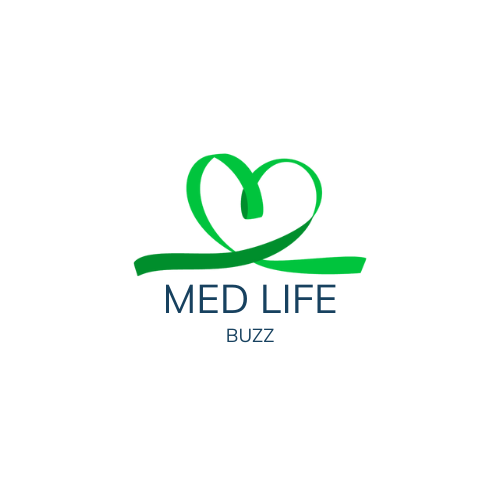
Hormones unbalanced? Try these expert-backed supplements

Best Supplements to Balance Hormones
Key takeaways:
- The best supplements to balance hormones include magnesium, calcium, omega-3 fatty acids, vitamins D, B6, and B12, adaptogens, and inositol.
- These nutrients may support regular periods, help balance moods, and encourage better sleep.
- But lifestyle changes tend to be more effective than supplements in balancing hormones and promoting overall physical and mental well-being.
Hormones, particularly estrogen and progesterone, control so much more than your monthly cycle. They influence mood, energy levels, metabolism, sleep, and even the appearance and texture of your skin.
Those hormone levels can get thrown out of balance, thanks to life stages — like perimenopause, menopause, pregnancy — monthly fluctuations, and health conditions, such as polycystic ovary syndrome (PCOS), thyroid disorders, and chronic stress.
Although a balanced diet, regular exercise, adequate rest, and stress management are vital for feeling your best, some women find that adding certain supplements makes a noticeable difference.
Keep reading to learn why the right supplements to balance hormones may be worth considering. We’ll also explore the best female hormone-balance supplements for women.
This article was reviewed by Julia Switzer, MD, FACOG.

Image Credit: peakSTOCK/Istockphoto.
Why Hormone Balance Matters
Hormones are chemical messengers that help regulate nearly every system in the body, from the reproductive cycle and metabolism to mood and immune function.
When hormones are in sync, you may feel more energized, focused, and emotionally steady. But when levels shift, whether due to seasons of life or health conditions, the effects can be felt from head to toe.
Symptoms of hormonal imbalance can affect women differently. They might include:
- Irregular periods
- Fatigue
- Mood swings
- Hot flashes
- Unintentional weight changes
- Sleep disturbances
- Acne and other skin changes
Understanding why hormone balance matters is the first step toward finding strategies — including lifestyle habits and research-backed supplements — to feel more like yourself again.

Image Credit: nensuria/Istockphoto.
Lifestyle First: The Foundation for Hormone Health
There seems to be a supplement for every health complaint. Sometimes, they can be helpful. But before reaching for the first supplement promising relief from hot flashes or breakouts, start with the basics: your everyday lifestyle habits.
Here are some of the most impactful things you can do in your daily life to support overall health and hormone balance:
- Optimize your nutrition. A nutrient-rich diet with plenty of whole, minimally processed foods, healthy fats, fiber, antioxidants, and lean proteins supports steady blood sugar, hormone production, and overall wellness. Variety is the best way to ensure you’re getting a healthy balance of essential nutrients.
- Move your body. Regular physical activity — whether strength training, yoga, or walking — can help regulate stress hormones, boost mood, and support better sleep. Ideally, incorporate several different types of exercise into your week to reap more benefits.
- Let yourself rest. Prioritizing quality sleep gives your body time to repair and restore. Adults need seven to nine hours of sleep per night. Sleep disruptions can be caused by conditions like insomnia or significant hormonal influences. Still, improving your sleep hygiene can help, like keeping a regular sleep-wake schedule and limiting screen time and caffeine.
- Keep stress in check. You can’t avoid every stressor, but you can choose how to respond to stress to keep its effects at a minimum. Meditation, deep breathing, journaling, or spending time outdoors can help keep stress in check.
Once you have the healthy lifestyle part down, you can consider adding a complementary supplement, like the ones we’re exploring next.

Image Credit: Drazen Zigic/Istockphoto.
Best Female Hormone-Balance Supplements
Not every dietary supplement makes sense for every woman. Below are some of the most well-researched or promising supplements for hormone balance. But again, they work best combined with other healthy habits.

Image Credit: .Iuliia Pilipeichenko / iStock.
Magnesium
Magnesium plays a central role in hundreds of bodily processes, including regulating stress hormones (particularly cortisol) and supporting restful sleep.
This essential mineral may also help ease premenstrual syndrome (PMS) symptoms like cramps, bloating, and mood swings. Theoretically, it does this by relaxing muscles and supporting brain chemical balance.
Magnesium can be found in foods like whole grains, seeds, leafy greens, avocados, and legumes. However, many women don’t get enough from diet alone, so a magnesium supplement might be helpful in meeting daily needs.

Image Credit: DepositPhotos.com.
Calcium + Magnesium (for Menopause)
During menopause, declining estrogen can lead to bone density loss and changes in sleep quality. A calcium and magnesium combination may help support both bone strength and muscle relaxation while also potentially easing hot flashes and night sweats.
These minerals work best when paired with vitamin D. Why? Vitamin D helps both calcium and magnesium absorb within the body, possibly boosting effectiveness.

Image Credit: kasia2003/istockphoto.
Omega-3 Fatty Acids
Two omega-3 fatty acids, eicosapentaenoic acid (EPA) and docosahexaenoic acid (DHA), are healthy unsaturated fats that help reduce inflammation and support normal hormone production in women.
An adequate supply of omega-3s in the body might help with menstrual cycle regularity, ease PMS-related mood changes, and promote heart and brain health.
EPA and DHA are predominantly found in fatty fish, such as:
- Mackerel
- Salmon
- Tuna
- Halibut
The precursor to these omega-3s, alpha-linolenic acid (ALA), is found in plant foods like flaxseeds, chia seeds, and walnuts. But only a small percentage of ALA is converted to EPA and DHA.
So, if you don’t eat much fish or seafood, a direct source of omega-3s in the form of a supplement might be a good option. This could be fish oil pills or capsules containing plant-based algae oil.

Image Credit: SyhinStas/Istockphoto.
Vitamin D
Vitamin D acts more like a hormone than a vitamin. How so? It influences reproductive health, mood regulation, and immune function.
Low vitamin D levels are common in women. This nutrient deficiency has been linked to PCOS, irregular menstrual cycles, and more severe menopause symptoms.
Supplementing with vitamin D3 can help restore healthy levels, especially if you have limited sun exposure.
That said, it’s best to have your blood levels checked before adding a vitamin D supplement to your routine. This will help your provider determine whether a maintenance dose is adequate or if you have a deficiency to correct first.

Image Credit: Pituk Loonhong/Istockphoto.
Vitamins B6 and B12
Vitamin B6 supports healthy estrogen metabolism and may help reduce PMS-related mood changes. Meanwhile, vitamin B12 is essential for energy production and nervous system health.
Both of these vitamins are important for red blood cell formation and overall hormone regulation.
Inadequate B vitamins can contribute to:
- Fatigue
- Mood disturbances
- Irregular cycles
- PMS
Supplementation might be beneficial for some women. It can be especially crucial if you follow a plant-based diet (which could lack vitamin B12) and in the later stages of life, as B12 absorption naturally declines with age.

Image Credit: Stanislav Sablin / iStock.
Adaptogens
Adaptogenic herbs like ashwagandha or black cohosh might be worth a try. Adaptogens are natural compounds that may help the body adapt to stress. Some believe they can support female hormone balance and a healthy stress response.
While research is still emerging, many women use adaptogens in an attempt to help balance cortisol levels and ease stress-related hormone fluctuations. You can often find them in powder or herbal tea form.

Image Credit: settaphan/istockphoto.
Inositol
Inositol is a naturally occurring compound. It’s technically a type of sugar alcohol (like xylitol in sugar-free gum) your body can produce on its own. Inositol plays a role in cell signaling, helping certain hormones work effectively.
There are several forms of inositol, but the most well-studied for women’s health are myo-inositol and D-chiro inositol. These are often used together to support insulin sensitivity, which might help with menstrual cycle regularity, hormone balance, and fertility, particularly for those with PCOS.
Some studies also suggest inositol may benefit mood and anxiety by influencing serotonin (“the happy chemical”) activity in the brain, but research is limited.

Image Credit: Serene SBS / iStock.
How to Choose Hormone Balance Supplements for You
The best hormone-balance supplement for one woman may not be the right fit for another. It really depends on your symptoms, health history, and lifestyle habits.
Here’s how to choose supplements for your personal needs:
- Identify your main concerns. Whether you’re targeting irregular cycles, mood swings, hot flashes, or dips in energy, pinpointing your specific concerns can help you figure out what supplements to start with.
- Look for third-party testing. This means the supplement has been independently verified for purity, potency, and safety. Look for seals from high-quality organizations like ConsumerLab, USP (U.S. Pharmacopeia), or NSF (National Sanitation Foundation) International.
- Read labels carefully. Avoid “proprietary blends” that hide exact doses and active ingredients. Without this information, it’s hard to know if you’re getting effective amounts or whether a product is safe.
- Consider the form. Supplements can come in capsules, powders, or liquids. Think about how the product fits into your routine, as consistency is key for results.
Finally, talk to your healthcare provider, especially if you’re pregnant, breastfeeding, taking medication, or managing a chronic condition. Your provider will help you choose appropriate supplements to balance hormones that align with your overall health plan.

Image Credit: Rabizo / iStock.
Hormone-Balance Supplements: Next Steps
Supporting hormone health is about more than what’s in your medicine cabinet. It’s about building a lifestyle that helps your body find its natural rhythm.
The right supplement can complement healthy habits and possibly address specific symptoms. But supplements aren’t typically treatments, and they’re most effective when paired with daily choices that nourish your mind and body.
Here’s what to keep in mind about supplements to balance hormones:
- Lifestyle comes first. Diet, how you’re moving your body, sleep quality, and stress-management practices lay the foundation for balanced hormones.
- The best female hormone balance supplements can help target specific concerns, from PMS to menopause symptoms, but they need to go hand-in-hand with everyday habits.
- Work with a trusted provider to choose safe, effective options tailored to your needs.
If you’re ready to explore supplements to balance hormones, start by figuring out your top concerns. Then, talk to a healthcare provider about the best fit for your health and goals.
- Related: Do Hair Vitamins Work for Hair Growth?
- Related: Do Over-the-Counter Antidepressants Actually Work?
Like MediaFeed’s content? Be sure to follow us.
This article originally appeared on ForHers.com and was syndicated by MediaFeed.org.
